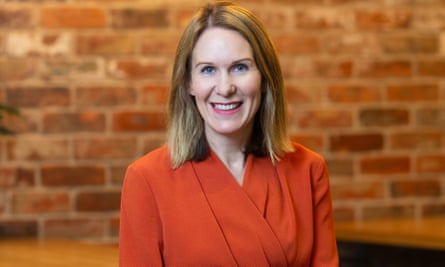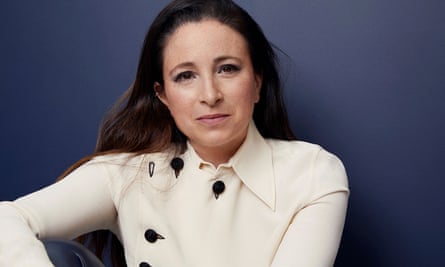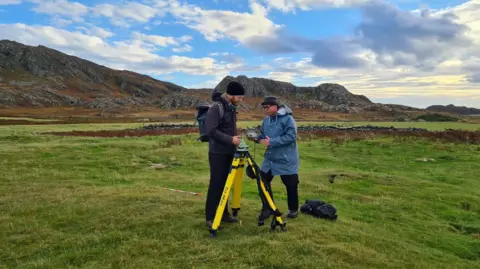Prabowo Subianto, the former Indonesian defense minister, officially took office as the new president in Jakarta on October 20, succeeding Joko Widodo. Notably, Widodo’s son, Gibran, has stepped into the role of vice president. The inauguration ceremony was attended by high-ranking officials from both the U.S. and China to offer their congratulations. In his inaugural address, Prabowo emphasized national unity and highlighted the importance of energy and food self-sufficiency, while also addressing democracy and non-alignment in foreign policy, calling for coexistence between China and the U.S.
At 73 years old, Prabowo becomes the oldest president in Indonesian history, surpassing the previous record held by the third president, B.J. Habibie, who took office at the age of 61 in 1998. Gibran, in contrast, becomes the youngest vice president in the nation’s history. Prabowo secured the presidency with 58.59% of the vote after two unsuccessful attempts against Widodo in previous elections.
Reports from international media outline the new government’s five key priorities, which include implementing a free nutrition program for over 80 million children and pregnant women, boosting national revenues, constructing 3 million homes annually (with a focus on low-income rural families), improving health and education, and enhancing foreign relations and defense.
As for Prabowo’s governance strategy, it remains uncertain, as he made few specific promises during his campaign, suggesting only that he would follow a “gradual approach.”
On the evening of October 20, Prabowo announced his new cabinet, dubbed the “Red and White Cabinet” after the colors of the Indonesian flag. Sri Mulyani Indrawati, a 62-year-old economist, will remain as finance minister, which is seen as a move to bolster market confidence in Indonesia’s economy. However, concerns have been raised about the potential debt implications of the new government’s large spending plans, and critics have suggested that the expanded cabinet may be designed for political patronage, possibly hindering effective governance.
Kevin Khoe, chief analyst at the Indonesian Institute for Foreign Policy Studies, noted that Prabowo has called for China and the U.S. to act as responsible global powers and has advocated for their coexistence, cooperation, and division of labor. Dinna, founder of Jakarta-based Synergy Policy, indicated that Indonesia will continue its collaboration with China, its largest trading partner and primary source of investment.
Dinna also mentioned that Prabowo is likely to personally attend all international meetings and negotiation forums, a departure from Widodo’s approach. He aims to ensure direct discussions with Chinese President Xi Jinping. With a bold confidence, Prabowo is open to engaging other key nations interested in maintaining security in the South China Sea.
China’s territorial claims in the South China Sea, characterized by the “nine-dash line,” overlap with Indonesia’s exclusive economic zone around the Natuna Islands. Despite China’s assertive stance in the region, Prabowo is expected to handle these relations with caution.
A recent lengthy article in the U.S. journal Foreign Affairs by Robin Niblett, director of the Royal Institute of International Affairs in the UK, highlighted that Widodo’s decade-long presidency did not favor either the U.S. or China, instead showcasing a strategy that sidesteps the confrontational dynamics between the two powers, a precedent that Prabowo may consider as he steps into his new role.
 Amelia HillSun 13 Oct 2024 10.00 EDTLast modified on Sun 13 Oct 2024 10.54 EDTShareWomen should stop striving for work-life balance to avoid living in a constant state of guilt, the ITV presenter and TV show host Charlene White has said.
Amelia HillSun 13 Oct 2024 10.00 EDTLast modified on Sun 13 Oct 2024 10.54 EDTShareWomen should stop striving for work-life balance to avoid living in a constant state of guilt, the ITV presenter and TV show host Charlene White has said. View image in fullscreenCharlene White: ‘I don’t think about work-life balance.’ Photograph: Nicky Jonston“A lot of parents, especially women, are told that we need to think about work-life balance when actually, if we focus too much on that, we consistently live in a state of guilt,” said the Loose Women presenter and mother of two. “I don’t think about work-life balance. I just do the best I can, every day.”
View image in fullscreenCharlene White: ‘I don’t think about work-life balance.’ Photograph: Nicky Jonston“A lot of parents, especially women, are told that we need to think about work-life balance when actually, if we focus too much on that, we consistently live in a state of guilt,” said the Loose Women presenter and mother of two. “I don’t think about work-life balance. I just do the best I can, every day.” View image in fullscreenKate Grussing: women should ‘take off those rose-tinted glasses’. Photograph: Hannah CKate Grussing, the founder and managing director of the recruitment firm Sapphire Partners, agreed. “Feeding younger women the lie that they can have it all is dangerous. It’s essential women take off those rose-tinted glasses because that myth makes women believe they’re deficient,” she said.
View image in fullscreenKate Grussing: women should ‘take off those rose-tinted glasses’. Photograph: Hannah CKate Grussing, the founder and managing director of the recruitment firm Sapphire Partners, agreed. “Feeding younger women the lie that they can have it all is dangerous. It’s essential women take off those rose-tinted glasses because that myth makes women believe they’re deficient,” she said. View image in fullscreenRuth Handcock: ‘You need to focus on personal satisfaction’. Photograph: Mark Weeks“Being a good mother and a good professional involves redefining ‘good’ in the context of your life and your family. You need to focus on personal satisfaction rather than meeting external standards,” she said. “You’ve got to let go of external expectations. Ask yourself whether your children are happy and your business is going well. Yes? OK, end of debate.”
View image in fullscreenRuth Handcock: ‘You need to focus on personal satisfaction’. Photograph: Mark Weeks“Being a good mother and a good professional involves redefining ‘good’ in the context of your life and your family. You need to focus on personal satisfaction rather than meeting external standards,” she said. “You’ve got to let go of external expectations. Ask yourself whether your children are happy and your business is going well. Yes? OK, end of debate.” View image in fullscreenKate Daly: ‘Superwoman is dead’. Photograph: Nicole EngelmannKate Daly, a co-founder of the divorce legal service Amicable and host of The Divorce Podcast, agreed: “Superwoman, in the comic-book definition, is dead,” she said. “The modern-day superwoman juggles millions of balls, with every expectation that she’ll drop some.”
View image in fullscreenKate Daly: ‘Superwoman is dead’. Photograph: Nicole EngelmannKate Daly, a co-founder of the divorce legal service Amicable and host of The Divorce Podcast, agreed: “Superwoman, in the comic-book definition, is dead,” she said. “The modern-day superwoman juggles millions of balls, with every expectation that she’ll drop some.” View image in fullscreenRebekah Capon: ‘We have to be more forgiving of ourselves’Rebekah Capon, the managing director of Hatch Enterprise, an entrepreneurship charity, forgot to top up her son’s lunch card last week because of work pressures. “But I’m not going to hold on to the guilt that he couldn’t have lunch,” she said. “The pressure is embedded in all of us as women, but we have to be more forgiving of ourselves and understanding that we’re not going to be on top of everything all the time.”
View image in fullscreenRebekah Capon: ‘We have to be more forgiving of ourselves’Rebekah Capon, the managing director of Hatch Enterprise, an entrepreneurship charity, forgot to top up her son’s lunch card last week because of work pressures. “But I’m not going to hold on to the guilt that he couldn’t have lunch,” she said. “The pressure is embedded in all of us as women, but we have to be more forgiving of ourselves and understanding that we’re not going to be on top of everything all the time.” View image in fullscreenLouise Oliver still feels guilty for sending her children to nursery at three monthsLouise Oliver, the UK president of the British Association of Women Entrepreneurs, said she had never met a parent who felt their work-life balance was in order – until they reached a position of sufficient seniority to build a team around them, both at home and at work.
View image in fullscreenLouise Oliver still feels guilty for sending her children to nursery at three monthsLouise Oliver, the UK president of the British Association of Women Entrepreneurs, said she had never met a parent who felt their work-life balance was in order – until they reached a position of sufficient seniority to build a team around them, both at home and at work. View image in fullscreenEmma Sinclair: ‘The whole concept of work-life balance is counterintuitive’Emma Sinclair, who at 29 was the youngest person in the UK to take a company public, agreed. “The whole concept of work-life balance is counterintuitive. The best we can hope for is to do as well as we can with most of the key elements in our lives, most of the time.”
View image in fullscreenEmma Sinclair: ‘The whole concept of work-life balance is counterintuitive’Emma Sinclair, who at 29 was the youngest person in the UK to take a company public, agreed. “The whole concept of work-life balance is counterintuitive. The best we can hope for is to do as well as we can with most of the key elements in our lives, most of the time.” Rachel Barton: ‘People should give themselves less pressure.’ Photograph: Accenture/LinkedInRachel Barton, a managing director at Accenture, said striving to achieve work-life balance was more pressured now because, she said, “the world is so short-termist and there is a culture of ‘I want things now’.
Rachel Barton: ‘People should give themselves less pressure.’ Photograph: Accenture/LinkedInRachel Barton, a managing director at Accenture, said striving to achieve work-life balance was more pressured now because, she said, “the world is so short-termist and there is a culture of ‘I want things now’.
 Getty ImagesVikings may have moved ships – similar to this replica of a vessel found in a Viking burial ground in Norway – across land in the west of ScotlandArchaeologists are investigating the possibility Vikings used shortcuts over land to help them move warships and smaller boats around Scotland's west coast.
Getty ImagesVikings may have moved ships – similar to this replica of a vessel found in a Viking burial ground in Norway – across land in the west of ScotlandArchaeologists are investigating the possibility Vikings used shortcuts over land to help them move warships and smaller boats around Scotland's west coast. Shane McLeodGerman project members set up equipment for a survey to find buried archaeological remainsThe research forms part of The Norse and the Sea project led by the University of the Highlands and Islands' Institute for Northern Studies.
Shane McLeodGerman project members set up equipment for a survey to find buried archaeological remainsThe research forms part of The Norse and the Sea project led by the University of the Highlands and Islands' Institute for Northern Studies.